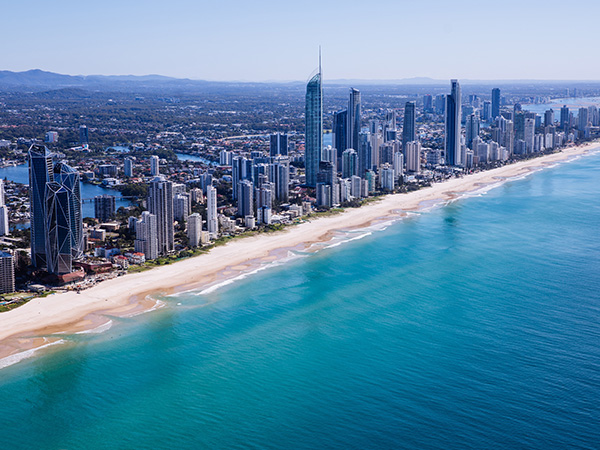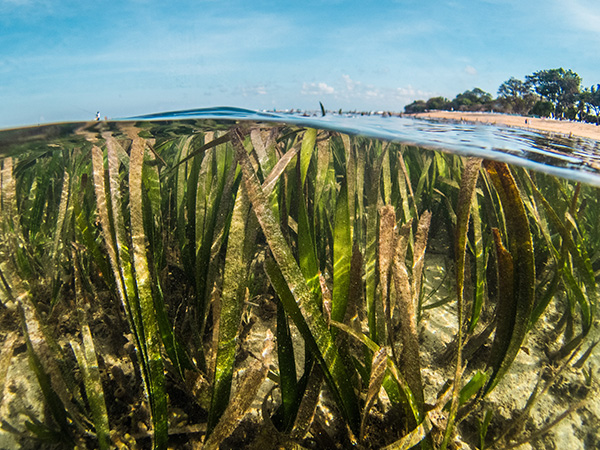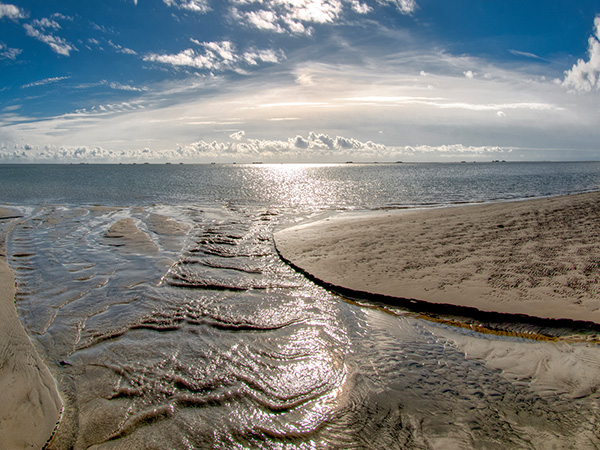Innovative tools and techniques for the study of coastal water quality
Water quality in our coasts and estuaries is vital to the maintenance of healthy and productive ecosystems. Urbanisation and industrial activities put our coastal waters under growing pressure from increased sediment and nutrient loads, as well as organic contaminants and trace metals.
We have expertise in all phases of the water quality assessment process—from the design of large-scale monitoring programs to the application of novel sampling and analytical methodology, as well as the analysis and interpretation of extensive water quality datasets.
Primary researchers
Associate Professor Will Bennett
Lead
Trace metals, marine sediments, environmental analytical chemistry
Miss Felicia Haase
PhD student
Thesis: Unravelling the early diagenesis of vanadium in anoxic marine sediments
Research Fellow
Environmental contaminants, gully erosion, water quality
Mrs Heera Lee
PhD student
Thesis: The impact of seagrass on trace metal dynamics in coastal sediments
Our expertise
- Design and implementation of large-scale coastal water quality monitoring programs
- Nutrient biogeochemistry in estuarine environments
- Sampling and analysis of metals in surface waters at ultra-trace concentrations
- Diffusive gradients in thin films (DGT) passive samplers for trace elements
- Suspended sediment monitoring in challenging and remote environments
- Iron, sulfide and trace element biogeochemistry in marine sediments
Nutrient dynamics in the Gold Coast Broadwater
The Gold Coast Broadwater is a shallow coastal estuary that receives inputs from four major rivers: the Nerang, Coomera, Logan-Albert and Pimpama. With rapid population growth and urbanisation, the water quality of the Gold Coast Broadwater is at increasing risk from excess nutrient inputs.
This project will utilise long-term routine water quality data collected at multiple sites throughout the Gold Coast Broadwater to investigate nutrient dynamics over various temporal and spatial scales. A better understanding of this complex system will enable the implementation of effective management strategies to protect the Gold Coast Broadwater into the future.


Trace metal fluxes in seagrass meadows
Seagrass meadows play an important role in maintaining estuarine water quality by trapping suspended sediments exported from rivers and streams. These sediments contain trace metals mobilised from the catchment due to anthropogenic activities, which can impart toxic effects on wildlife in sufficient concentrations.
This project will investigate the immobilisation of anthropogenic trace metals by seagrass sediments, and the geochemical mechanisms of trace metal immobilisation and release in the seagrass rhizosphere. Overall, this project will improve our understanding of the influence of seagrasses on trace metal geochemistry in coastal sediments and their role in mitigating anthropogenic metal inputs from urbanised coastal catchments.
Redox-sensitive trace metal geochemistry in marine sediments
Redox-sensitive trace metals are useful tools to study the geochemistry of ancient marine sediments. These ‘paleoredox tracers’ can even be used to refine our understanding of oxygen concentrations in the oceans of the early Earth. However, to accurately apply paleoredox tracers in an ancient setting, their geochemistry in modern sediments must first be resolved.
This project will investigate vanadium (a redox-sensitive trace metal) and unravel its complex geochemical behaviour in modern marine sediments. This knowledge can then be applied to interpreting vanadium in ancient sediments, potentially providing a new view of the nature of Earth’s early oceans and atmosphere.
Funding sources: Australian Research Council

Contact details
- Phone
- (07) 5552 7269
- Location and postal address
- Coastal and Marine Research Centre
- Room 2.01, Building G51
- Griffith University
- Gold Coast, Queensland, 4222